Graduate Course Descriptions: Summer 2025
Need more info?
For the most up-to-date list of classes offered, visit the dynamic schedule. For questions about classes, consult our graduate advising page or contact the listed instructor. To see what we'll be offering in future semesters,
visit our two-year course rotation template. Interested in studying literature, taking a writing workshop, improving your writing
skills, or brushing up your teaching skills, but don't want to pursue a degree? You
should apply as a Non-Degree Seeking Student.
Full Term Summer 2025:
ENGL 7/8530 - Field Experience/Practicum in ESL | Dr. Rebecca Adams | Online
Experience in observing and teaching, peer teaching, and work with an English as a
Second Language (ESL) specialist.
ENGL 7/8535 - ESL Grammar | Dr. Rebecca Adams | Online
Grammatical systems and strategies of Modern English; analysis of English structures
that tend to cause difficulty for ESL/SESD speakers.
ENGL 7/8538 - Cultural Issues in ESL | Dr. Emily Thrush | Online
Impact of culture on non-English language background speakers as well as the particular
aspects of U.S. culture and traditions needed for successful acculturation.
Graduate Course Descriptions: Fall 2025
Need more info?
For the most up-to-date list of classes offered, visit the dynamic schedule. For questions about classes, consult our graduate advising page or contact the listed instructor. To see what we'll be offering in future semesters,
visit our two-year course rotation template. Interested in studying literature, taking a writing workshop, improving your writing
skills, or brushing up your teaching skills, but don't want to pursue a degree? You
should apply as a Non-Degree Seeking Student.
Jump to:
- Applied Linguistics/TESOL Courses
- Creative Writing Courses
- Literary & Cultural Studies Courses
- Writing, Rhetoric, & Technical Communication Courses
Click on each course title to read the professor's full course description; click on each thumbnail image to view the course flyer.
Applied Linguistics:
ENGL 6533 - ESL/EFL in Multicultural Settings | Dr. Emily Thrush | MW 2:20-3:45
Approaches to working with ESL or EFL students in multicultural settings.
ENGL 7/8507 - Empirical Methods in Linguistic Research | Dr. Sage Graham | Thursdays
5:30-8:30pm
Develop research questions and hypotheses, prepare language surveys, use linguistic
databases, perform qualitative and quantitative analysis of linguistic data, use computational
tools, and prepare findings for presentation, and publication of research on the study
of language use.
ENGL 7/8511 - Survey of Linguistics | Dr. Leah Windsor | Mondays 5:30-8:30pm
Introduction to the nature of language with emphasis on basic principles of English
phonology, morphology, and syntax; emphasis on collecting and analyzing linguistic
data for research purposes.
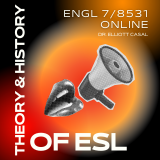 ENGL 7/8531 - Theory/History in ESL | Dr. Elliott Casal | Online
ENGL 7/8531 - Theory/History in ESL | Dr. Elliott Casal | Online
Survey of relation of linguistic principles to second language acquisition.
ENGL 7/8530 - Field Experience/Practicum in ESL | Dr. Rebecca Adams | TBA
Experience in observing and teaching, peer teaching, and work with an English as a
Second Language (ESL) specialist.
ENGL 7/8533 - Methods & Techniques of ESL in K-12 | Dr. Emily Thrush | Online
Techniques and resources for working with children and adolescents for whom English
is a second language. May be repeated for a maximum of 6 credit hours when topic changes.
ENGL 7/8535 - ESL Grammar | Dr. Ronald Fuentes | Tuesdays 5:30-8:30pm
Grammatical systems and strategies of Modern English; analysis of English structures
that tend to cause difficulty for ESL/SESD speakers.
ENGL 7/8537 - Second Language Reading | Dr. Rebecca Adams | Online
Reading is a key language skill. Language learners need to learn to read in their
L2, but at the same time, reading in the L2 helps them learn more language. In this
course, we explore how to learn to read in an L2, how L2 reading promotes language
learning, and how language teachers can promote L2 reading skills in their classrooms.
ENGL 7/8590 - Applied Theory of Linguistics | Dr. Lyn Wright | Wednesdays 1-4pm
Intensive study of specialized areas in English linguistics.
Creative Writing:
ENGL 7470 - Forms of Creative Nonfiction: How to Write About Music | Prof. Courtney
Santo | Mondays 5:30-8:30pm
For any* graduate student obsessed with music and its influence on culture. Students
will learn about nonfiction writing by reading and writing work that critiques, researches,
and responds to twentieth-and twenty-first century popular music.
*if you're not an English graduate student, email cmsanto@memphis.edu to request permission to take the class
ENGL 7485 - Literary Programming | Prof. Courtney Santo | Wednesdays 5:30-8:30pm
Hands-on experiential learning course for graduate students interested in careers
in publishing. Students will work with Professor Santo and the Pinch Journal, planing events with authors, developing literary arts publicity, and editing manuscripts.
May be repeated for a maximum of 6 credit hours.
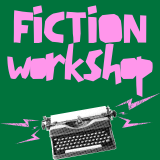 ENGL 7602- Fiction Workshop | Dr. Mark Mayer | Thursdays 5:30-8:30pm
ENGL 7602- Fiction Workshop | Dr. Mark Mayer | Thursdays 5:30-8:30pm
In a creative writing workshop, a community of other minds helps us to interrogate
our own. By providing us with travelogues of their ventures into our fiction, our
peers help us perceive what we have dreamt. This process requires difference—peers with their own instincts for language, their own sensitivities to experience,
and their own narrative intuitions—and solidarity, a shared commitment to putting this difference in service of the author’s vision.
With graduate-level rigor, we will invest ourselves in this process, attending not
only to craft questions—plot momentum, emotional interrogation, character revelation,
sentence structure—but also to the subtle work of discerning our own textual reflexes
and building collaborative artistic community.
ENGL 7603 - Poetry Workshop | Prof. Marcus Wicker | Tuesdays 5:30-8:30pm
This workshop aims to develop the graduate-level creative and editorial habits necessary
to crafting and revising successful poems. You will read assigned essays and collections
thoroughly to aid in the development of a personal canon, foster a variety of aesthetic
sensibilities, generate a portfolio, explore opportunities for publication, and engage
in literary citizenship.
Literary & Cultural Studies:
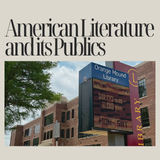 ENGL 6346 - Studies in American Literature: American Literature and its Publics |
Dr. Donal Harris | TR 2:40-4:05
ENGL 6346 - Studies in American Literature: American Literature and its Publics |
Dr. Donal Harris | TR 2:40-4:05
This course has two goals: 1) to explore how a select group of authors in the U.S.
have conceptualized the idea of “the reading public,” and how those ideas have changed
(or not) since the end of the nineteenth century 2) to survey how currently working
humanities scholars, especially those in literary studies, create audiences for their
work, with special attention to the recent emergence of the ‘public humanities’ as
a research field. Rather than essays and exams, students will conduct project-based,
multi-modal assignments that contribute to on-going public humanities projects. No
prior knowledge is expected or assumed. Come one, come all! May be repeated for a
maximum of 6 hours credit with change in course content.
ENGL 6454 - Studies in Forms & Genres | Dr. Cristina Maria Cervone | MW 2:20-3:45
In this course, we will privilege romance’s underlying sense of a fantastical story of travel and adventure. Drawn from a time span encompassing more than 800 years, readings include the twelfth-century
lais of Marie de France; the thirteenth-century Roman de Silence; a fourteenth-century retelling of the Orpheus legend, Sir Orfeo; Sir Thomas Malory’s fifteenth-century Le Morte d’Arthure; William Shakespeare’s early seventeenth-century The Tempest; from the eighteenth century, Horace Walpole’s The Castle of Otranto: A Gothic Story; from the nineteenth century, Edwin Abbott Abbott’s Flatland: A Romance of Many Dimensions, and H. G. Wells’s The Invisible Man: A Grotesque Romance; and from the twentieth century, J. R. R. Tolkien’s The Hobbit: or, There and Back Again.
Permission of instructor is required. May be repeated for a maximum of 6 hours credit
with change in course content.
ENGL 7/8000 - Literary Research | Dr. Theron Britt | Mondays at 5:30pm
Various approaches to literary scholarship and research methodology; introduction
to professional standards, bibliographical methods, and procedures of scholarship
and criticism. NOTE: This course is required for Literature majors and should be taken in the first year
of graduate study.
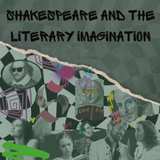 ENGL 7/8255 - Shakespeare and the Literary Imagination | Dr. Joshua Phillips | Thursdays
at 5:30pm
ENGL 7/8255 - Shakespeare and the Literary Imagination | Dr. Joshua Phillips | Thursdays
at 5:30pm
This course is designed to introduce students to Shakespeare's works and to defamiliarize them. Shakespeare remains a potent aesthetic force in modern culture,
reproduced in literary works and films, on t-shirts and memes. This class will help
students to work through and with Shakespeare's language and to think differently
about the work, both as a product of its own time and as an aesthetic force in ours.
Subjects covered may include imitation and appropriation, race and Shakespeare, and
cultural poetics and politics. This course fulfills the graduate requirement for a
pre-1800s class.
 ENGL 7/8328 - Major Authors in African American Literature: The Post-Soul Moment and
Contemporary African American Literature | Dr. Terrence Tucker | Mondays at 5:30pm
ENGL 7/8328 - Major Authors in African American Literature: The Post-Soul Moment and
Contemporary African American Literature | Dr. Terrence Tucker | Mondays at 5:30pm
In this course we will trace the expansion and maturation of African American literature
over the last thirty years. Emerging alongside the rapidly changing social, political,
and economic landscapes of post-Civil Rights America, we will chronicle an impressive
array of new, young voices that not only reflect the lives of African Americans after
the Civil Rights Movement, but that also interrogate how external and integral forces
and structures impact the lives the authors depict in unique ways. Called “post-soul”
by some, the “Word Movement” by others, contemporary African American literature has
been influenced most directly black nationalism, black feminism, and hip-hop music,
all of which we will explore in this class.
ENGL 7/8336 - African American Literary Theory | Dr. R. Nicole Smith | Tuesdays at
5:30pm
This course will consider literary theory within the framework of Black feminist epistemology.
We will critically consider the varied and important ways in which Black feminist
theory creates and substantiates knowledge through experience and praxis. Texts for
this course will include bell hooks’s All About Love, Alexis Pauline Gumbs’s Undrowned, and Patricia Hill Collins’s Black Feminist Thought.
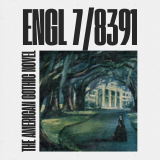 ENGL 7/8391 - The American Novel: American Gothic | Dr. Jeff Scraba | Wednesdays at
5:30pm
ENGL 7/8391 - The American Novel: American Gothic | Dr. Jeff Scraba | Wednesdays at
5:30pm
We will examine American Gothic literature as a genre and a mode, from its beginnings
at the turn of the 19th century through contemporary representations. In the first half of the course, we
will survey “classic” American Gothic from the antebellum period; in the second half
of the course, we will examine the emergence and development of “Southern Gothic.”
Authors will include Edgar Allan Poe, Washington Irving, Louisa May Alcott, Harriet
Jacobs, William Faulkner, Flannery O’Connor, Monique Truong, Jesmyn Ward, and Toni
Morrison.
Writing, Rhetoric, & Technical Communication:
 ENGL 6618 - Document Design | Dr. Chloe Robertson | Online
ENGL 6618 - Document Design | Dr. Chloe Robertson | Online
This course takes a theoretical approach towards visual and written communication,
honoring the interrelationship between visual and verbal elements present in documentation.
In other words, we will interrogate how documents are designed to be both visually
and verbally appealing for audiences while conveying the necessary information clearly
and artfully. We will then apply what we have learned to creating our own documents
, practicing what it means to be thoughtful authors and designers in solo and collaborative
settings.
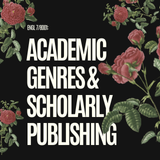 ENGL 7/8001 - Academic Genres & Scholarly Publishing | Dr. Chloe Robertson | Wednesdays
5:30-8:30pm
ENGL 7/8001 - Academic Genres & Scholarly Publishing | Dr. Chloe Robertson | Wednesdays
5:30-8:30pm
This course demystifies the various genres found in academia that contribute to individual
success. In this class, we will cover genres directly related to publishing including,
but not limited to: book reviews, annotated bibliographies, and journal articles.
We will learn how to adapt coursework into viable publications and also the various
documents and genres associated with becoming a strong candidate on academic and industry
job markets. In doing so, we will practice collaborative inquiry and revision in order
to become confident in recognizing, analyzing, and creating genre-appropriate documents.
ENGL 7/8003 - Theory/Practice Teaching Composition | Dr. Katherine Fredlund | Mondays
1-4pm
Study and application of interpretive strategies to texts pertinent to professional
writing and composition studies.
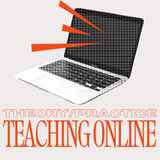 ENGL 7/8008 - Theory/Practice Teaching Online | Dr. Will Duffy | Online
ENGL 7/8008 - Theory/Practice Teaching Online | Dr. Will Duffy | Online
How do you design an online course that’s both accessible and engaging? What makes
digital learning environments equitable—or not? What do online instructors need to
know about generative AI? This course explores the pedagogical, technological, and
ethical dimensions of teaching in digital environments. Designed for current and future
online teachers, ENGL 7/8008 blends theory with application to investigate topics
such a universal design for learning, student engagement, surveillance and privacy,
multimodal literacies, and other related concerns. Throughout the course, students
will also have opportunities to adapt course concepts to their own subject areas and
teaching contexts, with assignments and discussions encouraging reflection on how
to leverage disciplinary norms, curricular needs, and learning goals to design effective
online learning spaces. Students are required to complete the course to qualify for teaching online for the
Department of English.
 ENGL 7/8820 - Topics in Rhetoric: Post-Truth Rhetorics | Dr. Scott Sundvall | Thursdays
5:30-8:30pm
ENGL 7/8820 - Topics in Rhetoric: Post-Truth Rhetorics | Dr. Scott Sundvall | Thursdays
5:30-8:30pm
QAnon, Pizzagate, fake news, alternative facts, InfoWars, anti-vaxxer propaganda,
Flat Earth conspiracy theories, etc.: our post-truth moment has arrived in full form.
Yet the irony of our post-truth problematic is not that we lack information but rather
that there is an over-abundance of information (Jenny Rice), from which fabulated
narratives, built on false patterns in pursuit of affirmation, emerge. This graduate
seminar will plainly ask, what is rhetoric's necessary and categorical attendance
to (post-)truth, insofar as rhetoric is, broadly understood, the available means of
persuasion? To this end, this course will reflect on how rhetoric studies can best
understand "post-truth" not in terms of what it is but rather how it works—and how such can be reappropriated in the service of common good and well-being.
